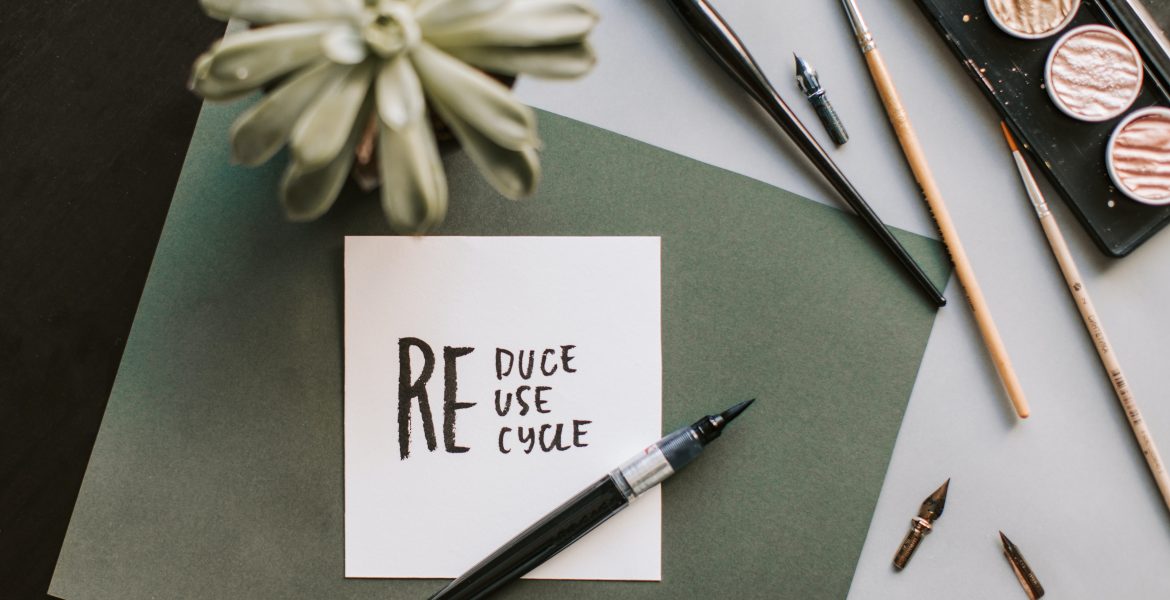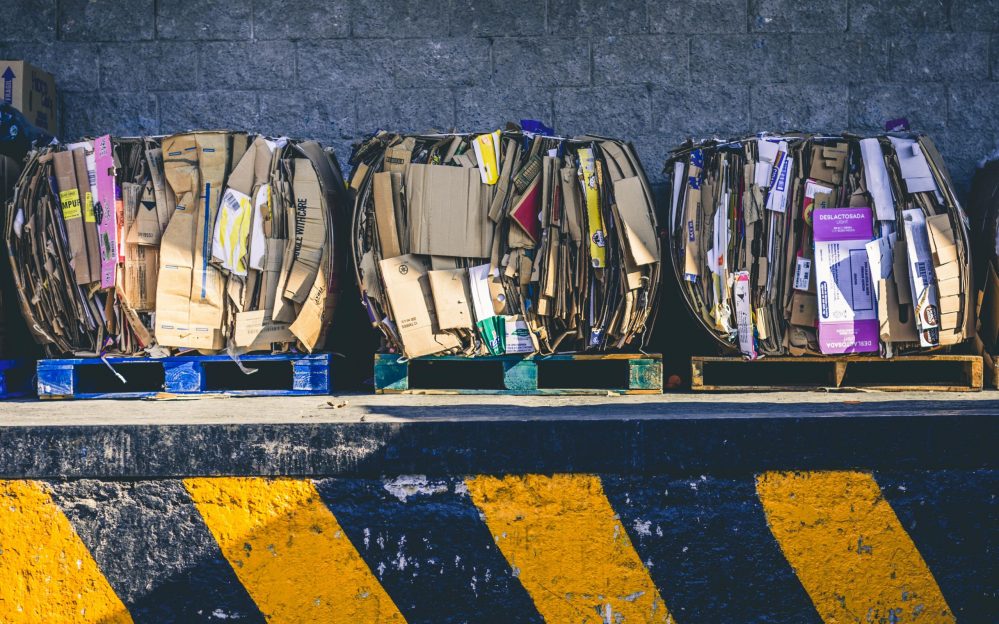Recycling and waste management should be an important routine of one’s domestic chores. This is particularly true in Switzerland, where disposing of the waste is taken seriously, and each person is expected to play their part. Famous for their waste and recycling collection system, the Swiss have taken the act of putting out the trash to a whole new level of effectiveness and “weirdness” of sorts. They handle, practically, every type of junk separately—from glass and PET bottles to paper and cardboard and all the way through to organic waste, batteries, and aluminum.
In order to understand what goes in which bin and get a better insight into the recycling system in Switzerland, the questions posed below will guide you through the complicated process of separating waste and avoiding some rookie mistakes.
How Do You Recycle in Switzerland?
Waste separation rules might seem a bit strange to people of some other countries were dumping all the trash into a single container would be “all good.” In Switzerland, however, this would be a serious offense
The activity is supervised by local authorities; usually, municipal workers in orange jackets who have the right to check the garbage bags for any violation of rules. Like Santa Claus, they check who was naughty and who was good, at least on their home turf.
This recycling system is troublesome, especially to foreigners and visitors who get a lot of scolding by their neighbors for their “un-Swiss” way of throwing the trash and usually get lectured about the environmental hazard that one plastic junk could cause.
There is and always has been a Swiss way of doing things—and it’s no different when it comes to waste disposal and recycling processes. Switzerland tops world rankings for having the highest recycling rates where every citizen is encouraged, through various campaigns, to recycle as much as possible. Switzerland no longer adopts the practice of burying the waste disposal in landfill sites—this means that waste is either recycled to convert them into usable energy or help conserve natural resources.
Garbage disposals in Swiss cities
In Switzerland, recycling can be done either through a door-to-door collection or via public facilities such as collection spots near you which can be checked using the Recycling-map. Either way, recycling is mandatory, and failure to do so can result in stiff fines, which could go up to CHF 300.
Household recycling
Recycling through the door-to-door collection is usually charged for, in the sense that you have to pay for the official bags required by the government for waste disposal. Waste is only to be collected in bags that have a payment sticker attached. These special trash bags can be bought either in supermarkets or other grocery and convenience stores. The bags, depending on their size, are rather expensive (over CHF 25), which caused people to frequently steal them. For this reason, you may not find them on special shelves and, usually, you have to ask for them at the cash register.
Recycling through public facilities
Recycling via public facilities is often free of charge, but you have to take out the trash to collection spots that can be found throughout the city. These collection points have different containers for each waste product (e.g., paper, plastic, glass bottles, food, etc.) Other junk can be taken to specific pick-up services such as supermarkets, retail shops, and other recycling centers.
It is relevant to learn about the recycling services and hours for where you live. There are particular days and hours for when specific waste products can be collected, which is important not to miss out. Usually, municipalities have information available online where you can check for more details.
If you’re still skeptical about where to bring your recyclable waste, we’ve compiled a non-exhaustive list of waste that can be recycled through door-to-door collection and via different collection points throughout the city, along with their respective symbols.
The List of Recyclables and Recycling Symbols in Switzerland
Switzerland’s list of recyclables is so long it can fold out into ten pages. There are so many rules and drop-off locations to remember that sometimes people just don’t want to be bothered. Recycling in Switzerland demands devoting a lot of time and effort, and usually, this effort results in decent, respectable citizens, no fines, and most importantly, a friendly and caring environment.
Compost/ organic substances
 Organic waste such as fruit peels, apple cores, and other food scraps are recycled to make compost which is good for soil, gardens, and plants. Green waste is usually collected separately, and there are special bins for them.
Organic waste such as fruit peels, apple cores, and other food scraps are recycled to make compost which is good for soil, gardens, and plants. Green waste is usually collected separately, and there are special bins for them.
Paper and cardboard
 It is necessary to separate paper from cardboard and put them in their allocated trash receptacle. Just make sure to bundle up and tie them up neatly with the recycling thread. Paper and cardboard waste can be either put in their respective container or, alternatively, taken back to stores that sell electronics or furniture.
It is necessary to separate paper from cardboard and put them in their allocated trash receptacle. Just make sure to bundle up and tie them up neatly with the recycling thread. Paper and cardboard waste can be either put in their respective container or, alternatively, taken back to stores that sell electronics or furniture.
PET bottles
 Plastic bottles go back to local supermarkets such as Migros, which have a PET bottle disposal, or you can search for PET receptacles outside or near supermarkets. Ideally, the bottles should be crushed and flattened to make them smaller.
Plastic bottles go back to local supermarkets such as Migros, which have a PET bottle disposal, or you can search for PET receptacles outside or near supermarkets. Ideally, the bottles should be crushed and flattened to make them smaller.
Plastic material
 Anything made from plastic, besides PET bottles, falls into this category. Plastic bags, bottle caps, window frames, and all other plastic-made products should be kept separate from PET bottles.
Anything made from plastic, besides PET bottles, falls into this category. Plastic bags, bottle caps, window frames, and all other plastic-made products should be kept separate from PET bottles.
Glass
 Glass, broken or whole, is recycled according to its color; there are containers for green, brown, and clear glasses. Blue, purple, and other colored glasses go together with the green ones. However, it would help if you were careful not to throw mirrors and ceramics in the same container as regular glasses as the melting temperatures are not the same.
Glass, broken or whole, is recycled according to its color; there are containers for green, brown, and clear glasses. Blue, purple, and other colored glasses go together with the green ones. However, it would help if you were careful not to throw mirrors and ceramics in the same container as regular glasses as the melting temperatures are not the same.
Symbols according to their color:
Clear glass
 Green glass
Green glass
 Brown glass
Brown glass
 Aluminum
Aluminum
 Soft drink and deodorant cans, food containers, aluminum coffee capsules, and aluminum foil are recycled separately from other metals. For example, aluminum coffee pods and tin cans are collected separately and have different recycling symbols.
Soft drink and deodorant cans, food containers, aluminum coffee capsules, and aluminum foil are recycled separately from other metals. For example, aluminum coffee pods and tin cans are collected separately and have different recycling symbols.
Batteries
 Lithium-ion batteries are considered to have damaging effects on the environment and should not be thrown in regular containers as they need specialized channels to be recycled. They can be returned to retail shops or in some supermarkets which have special containers for used batteries and which are free of charge.
Lithium-ion batteries are considered to have damaging effects on the environment and should not be thrown in regular containers as they need specialized channels to be recycled. They can be returned to retail shops or in some supermarkets which have special containers for used batteries and which are free of charge.
Electronic and electrical equipment
 E-waste is also full of hazardous material and must be taken back to stores that sell the same type of products. It is estimated that over 10 million smartphones lie unused in people’s homes in Switzerland, but only 20% of them are recycled. This points to their good collection culture.
E-waste is also full of hazardous material and must be taken back to stores that sell the same type of products. It is estimated that over 10 million smartphones lie unused in people’s homes in Switzerland, but only 20% of them are recycled. This points to their good collection culture.
Textiles and shoes
 Old clothes and shoes can be dropped into charity collection containers which are located at recycling centers. There are organizations such as TEXAID and REVANT which redistribute old clothes to people in need. Alternatively, you can also put textile waste into collection receptacles in your neighborhood.
Old clothes and shoes can be dropped into charity collection containers which are located at recycling centers. There are organizations such as TEXAID and REVANT which redistribute old clothes to people in need. Alternatively, you can also put textile waste into collection receptacles in your neighborhood.
Other Waste
For the rest of it all, visit city halls for instructions and details.
Following all these rules and specific symbols can be a bit intimidating, but remember you are doing this for your health first and for a friendly, pollution-free environment.
Again, useful points to remember:
- Use designated bags with paid stickers to throw your trash.
- The bags can be bought in all supermarkets and convenience stores.
- Waste separation rules should be followed accordingly. For example, green and brown bottles have different containers, so do PET bottles and other plastic materials.
Stick to the rules, and you will never have to worry about the hefty fines reaching your mail or the annoyed neighbors shaking their heads.





